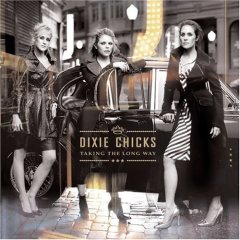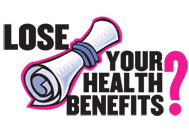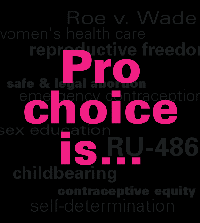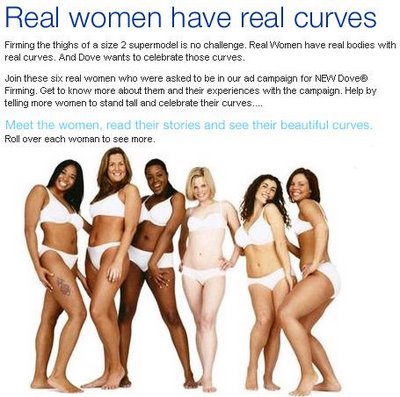
In her novel, "Lucky" Alice Sebold recounts the incident that changed her life. She was a freshman at Syracuse University in 1981 when she was attacked by a strange man and brutally raped in a dark tunnel. At the time Alice was only 18, now in her 30s and a successful New York Times Magazine contributor, she looks back on the event that shaped so much of her life.
The title of the book refers to Sebold's luck… she was attacked by a serial rapist but not murdered. But she was also lucky because her case was easy to prosecute. She was a virgin prior to the rape, she was wearing bulky clothing, and her rapist beat her, leaving unmistakable evidence of violence. In her novel, she addresses these facts and draws attention to the nature of rape in this country. At one point, the defense attorney in the case insinuated that because she was wearing "Calvin Klein" jeans she was somehow sending out a signal.
Sebold's rapist was convicted, but many rape cases are more complex. Many rape victims know their assailant, maybe they have had a previous sexual relationship with him/her, or at the time of the assault they were under the influence of drugs and alcohol. Many of these rapes have little or no physical evidence to present. But ask yourselves, why is the trial focusing on the character or sexual history of the victim? Why does society approach victims of rape this way? We have already discussed that our cultural perceptions of women affect the way we treat them. We approach women with:
Double standard-- if they initiate sex they are sluts
Stereotypes-- women who are victims of rape were asking for it or deserved it
No respect-- viewing them as commodities rather than independent sexual beings
But is there something deeper?
Alice Sebold's book is a personal story of a real life crime, but when we see rape portrayed by media or movies, what is different?
Movies that showcase false rape
Consider the movie, Wild Things where a high school guidance counselor, Sam (Matt Dillon), is accused by two students, first Kelly (Denise Richards) and then Suzie (Neve Campbell) of sexual assault. Both girls give convincing testimony on the stand and to authorities of their rapes. They appear genuine victims, giving specific details of their alleged assaults, all the while crying and exhibiting signs of being victimized. It is revealed later that these girls are really carrying out an elaborate con to gain money. They are also portrayed as very promiscuous. The tagline for this movie, "they're dying to play with you."
Or the movie Disclosure where Tom (Michael Douglas) is nearly sexually assaulted by his boss, a very seductive Meredith played by Demi Moore. When Douglas' character charges her with sexual harassment, her demeanor instantly changes to a demure, innocent woman who has been the victim. The audience knows the real truth- this woman is conniving and depraved and will stop at nothing to get what she wants. The tagline for this movie is "sex is power."
An older movie,
The Crush features a teenager, Darian (Alicia Silverstone) obsessed with a 20 something neighbor man, Nick (Cary Elwes). When he resists her advances she sneaks into his home, steals a used condom, plants semen on herself and then accuses him of rape. In the picture: Alicia Silverstone (portrayed highly-sexualized at 14) accuses Cary Elwes of rape. Her character is mentally unstable, murdering and vicious.

Kevin Spacey stars in The Life of David Gale as a successful professor whose entire career and family life is shattered when a student accuses him of rape. In this scenario, the girl initially tries to seduce Spacey's character for a grade and he resists. Later at a party he engages in consensual sex with her, she encourages him to be rough (ripping her clothes, etc). She later goes to authorities and reports it as a rape using physical evidence from their encounter.
***All of these movies paint a picture where men are often and easily made victims of women's plots to accuse them of rape.
If a woman in Hollywood takes a role of a highly-sexualized character, she runs the risk of being portrayed as animalistic, evil and cunning. Movies like Fatal Attraction (Glenn Close), Basic Instinct (Sharon Stone) and Disclosure (Demi Moore) all portray sexualized women as something to fear, something immoral and without any redeeming values.
***Other movies to watch closely and see how they deal with rape/sexual politics:
-- To Kill a Mockingbird (white women falsely accusing black man)
-- Rules of Attraction (victim of date rape begins relationship with attacker)
-- Devil's Advocate (Woman believed to be suffering from hallucinations is raped, no one believes her)
-- The Accused (Jodi Foster's character is gang raped in bar. She is accused of dressing and acting like she wanted it)
-- Gone with the Wind (Scarlet is slapped and dragged upstairs by her husband -- this is "romance?")
-- The World is Not Enough (abducted and abused woman played by actress Sophie Marceau falls in love with attacker, begins sexual relationship)
-- Pretty Woman (prostitute played by Julia Roberts is nearly raped by a man who believes she will sleep with anyone)
-- Boys Don't Cry (Hillary Swank's character is raped when a group of men discover she is genetically female, not male)
-- Leaving Las Vegas (Elisabeth Shue portrays a prostitute who is brutally assaulted and raped by a group of 20-something white men)
Misconceptions addressed:
"Many women who report being raped are lying"
How many rapes are reported falsely?
***The word "unfounded", as the police use it, is a technical term meaning "not enough evidence to proceed to trial." It does not mean that the accusation was necessarily false.
Steve Thompson, considered to be one of America's leading experts on the topic of sexual aggression and the Sexual Assault Services Coordinator at Central Michigan University, stated that in an average of 1,000 reports of rape, only one report is false.
The following information is from: Joanne Archambault, Sergeant (Retired SDPD) SATI, Inc. Training Director:
"After literally decades of feminist lobbying and demands for better treatment of rape victims, many police agencies across America are still stuck in a 1950s-era view of sexual assault.
Despite the official promises that victims would be treated with sensitivity, police frequently don't understand how to achieve that goal. And although thousands of dedicated law enforcement officers want to do the right thing, there often is little support for sex crimes investigators. Rape complaints often are not properly investigated when police departments don't allocate the necessary resources to do the work or train their investigators.
There are huge differences in the estimates given for the rate of false reporting of sexual assault. Studies and surveys range from 0% to 98%. This is not surprising given the differences in definitions and the different ways of determining a complaint to be false and then recording it.
Many professionals working in the field of sexual assault contribute to the problem by citing statistics from the FBI Uniform Crime Reporting Code without understanding the definition or the source."
Dangers in UNFOUNDINGØ Investigators should not be able to “unfound” a sexual assault allegation without evidence that the crime did not occur.
Ø Unfounding is often used for cases that don’t fit the stereotype of “real” rape.
Ø Many of the victims affected by improper unfounding are women of color, prostitutes, drug addicts or simply acquainted with their assailant
Ø Improper unfounding fuels the myth of false allegations.
Keep all this in mind as you watch the Duke case unfold. In my area of the world, very similar accusations have come to light. Check out this article










